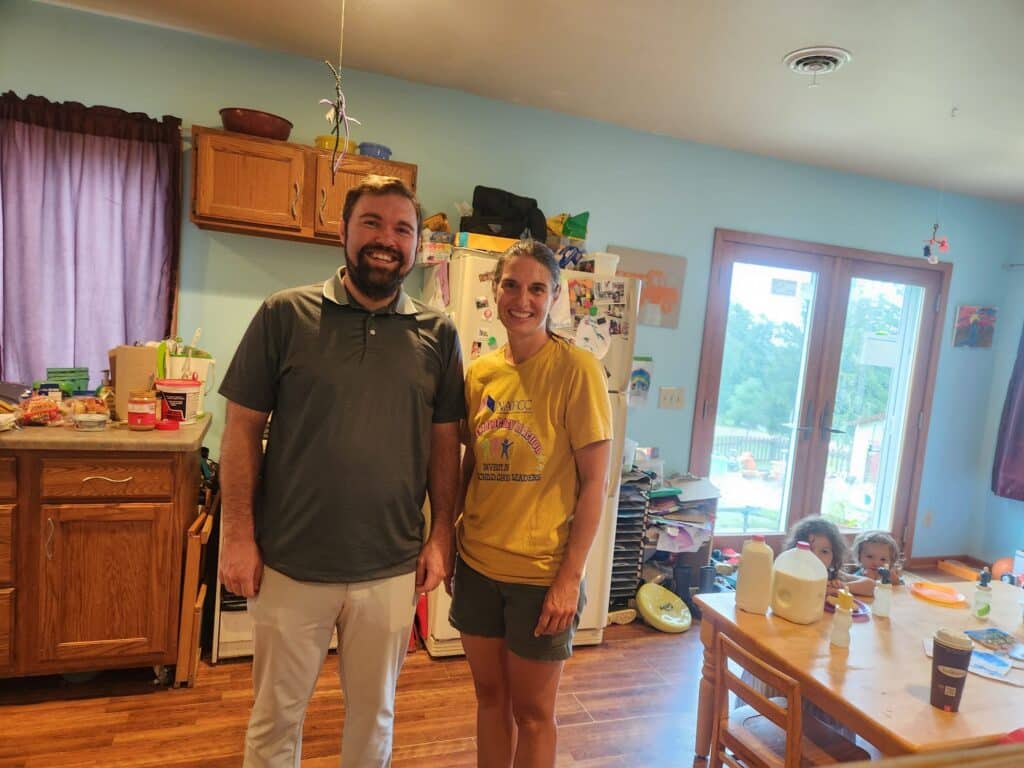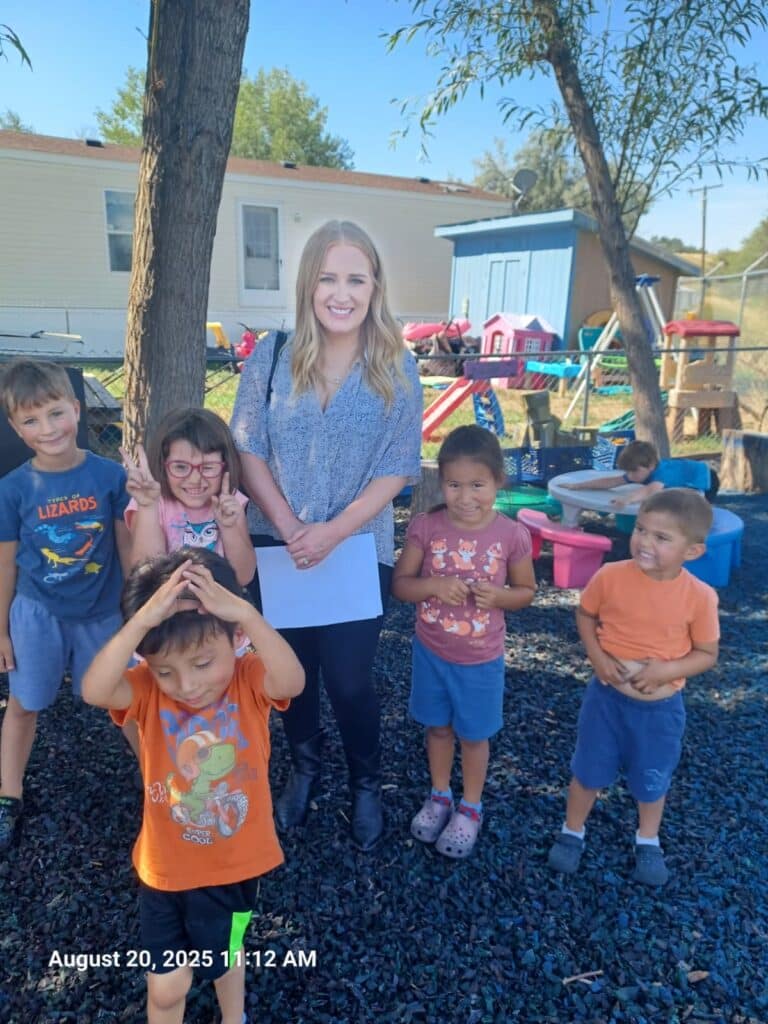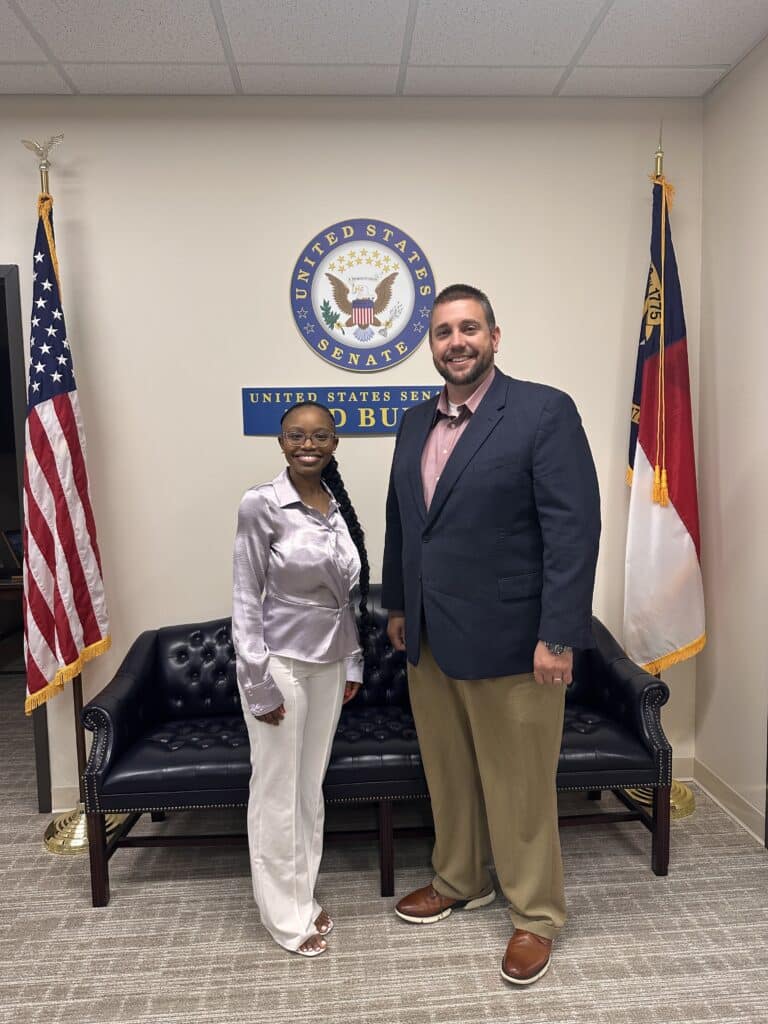Home Grown believes the most impactful policies are shaped those closest to the work. When making critical decisions that will affect home-based child care providers and the families they serve, policymakers should prioritize listening to and learning from these constituents to ensure their voices are not only heard but centered. Providers and caregivers hold valuable expertise, grounded in lived experience, that can help transform home-based child care (HBCC) policy.
During the 2025 August congressional recess, Home Grown connected provider and caregiver leaders with their local legislators to host visits in their HBCC programs. Home Grown also provided capacity building support to providers and caregivers, as needed in preparation of the visits. These visits gave provider leaders an opportunity to share their voices and highlight the issues that matter most, while giving policymakers a firsthand look at the essential role home-based providers play every day.

New Glarus, Wisconsin
Corinne Hendrickson, owner and operator of Corinne’s Little Explorers in New Glarus, Wisconsin, has cared for children in her community for over 18 years. In August 2025, she welcomed Chandler Denhart, a staffer from the office of Representative Mark Pocan (WI-02), to her family child care home.
After Chandler interacted with children and the parents, Corinne shared how changes to the Child and Adult Care Food Program (CACFP), especially the impact of tiering, have affected her program. “We need to eliminate tiering to ensure all providers can afford to serve healthy meals,” she said. She also discussed the ripple effects of child care subsidy cuts and how federal policy changes like H.R. 1 could further strain home-based providers.
Congressional visits can feel daunting, regardless of how experienced an advocate is. The support offered by Home Grown ensured providers felt confident in their ability to advocate for themselves. “Even after years of advocacy, you still want everything to go just right,” Corrine reflected. A few weeks after the visit, Corinne announced a new chapter in her advocacy journey: she would close her program and run for office in Wisconsin’s Senate District 17, where she will continue to champion children, families, and fellow providers at the state level.

Billings, Montana
Sheryl Hutzenbiller, owner and operator of Munchkin Land in Billings, Montana, has been in business for nearly 30 years, caring for a mixed-age group of infants through preschoolers. During the August recess, she welcomed a staffer from Senator Steve Daines’ office for a tour of her family child care home.
Their discussion focused on the CACFP and the challenges of maintaining participation under current Tier II reimbursement rates. “It’s difficult to stay in the food program under Tier II rates,” Sheryl explained. “In an agricultural state like Montana, child care and food systems are deeply connected, rising food costs have a major impact on sustainability.”
Sheryl also shared her concerns about families losing access to Medicaid and SNAP benefits and how those losses directly affect her program and the children she serves. By the end of the visit, the staffer expressed how impressed they were by the quality of care and complexity of Sheryl’s work.
Her advice to other providers preparing for visits with policymakers? “Go with the flow. Even if a child is having a meltdown, that’s part of a typical day,” she said. “We can share stories about what we do, but until policymakers experience it, they won’t truly understand it.”
Winston-Salem, North Carolina
Shalicia “Shay” Jackson, former owner and operator of Modern Early Learning Academy in Winston-Salem, North Carolina, met with Justin Somers, Regional Director for Senator Ted Budd (R-NC), to discuss the urgent need for more resources and support for home-based providers.

Shay shared photos of her program and described “a day in the life” of a family child care provider, emphasizing how HBCC is essential to local economies. “We are the workforce behind the workforce,” she said. “Communities can’t function without HBCC providers. We need more resources and support to continue doing this essential work.”
She also highlighted the loss of regional child care consultant positions in North Carolina, roles that once connected providers with mentors who shared critical resources and training. As a former consultant herself, Shay urged policymakers to restore funding for this supportive role.
Shay acknowledged that congressional visits can feel intimidating, especially for new advocates. Her advice: “If it’s your first time, find a mentor or pair up with someone experienced for your meeting. It makes a big difference.”
Why It Matters
In total, Home Grown coordinated 5 visits between home-based child care providers and their congressional offices from New Jersey, New York, Montana, North Carolina, and Wisconsin. Across every visit, provider leaders raised common priorities: increase funding for CCDBG to prevent cuts that threaten families’ access to care, and eliminate CACFP tiering and ensure reimbursement rates reflect real food costs. Providers also shared concerns about impending cuts to Medicaid and SNAP benefits.
Each visit looked a little different, but they all shared one powerful theme: home-based providers boldly speaking out about the issues that matter most. From morning drop-offs to meals, play time, and learning, legislators and staffers had the opportunity to experience firsthand the expertise, care, and dedication that keep communities running.
By stepping into family child care homes and seeing this work up close, policymakers can better understand the stakes of federal decisions, and the importance of including providers and caregivers in policymaking.
What’s Next
Current systems too often exclude parents, families, and providers from decision-making. Home Grown will continue working alongside provider and caregiver leaders, through initiatives like Leading from Home and the Policy Workgroup, to prepare for more future visits, while also sharing data, and amplifying provider and caregiver stories that illustrate how policy decisions shape the lives of children, families, and communities.
By supporting provider and caregiver leaders to advocate for themselves and their peers, Home Grown aims to bring even more provider voices into the policy process, ensuring that future child care policy reflects the realities and wisdom of those who live it every day.



